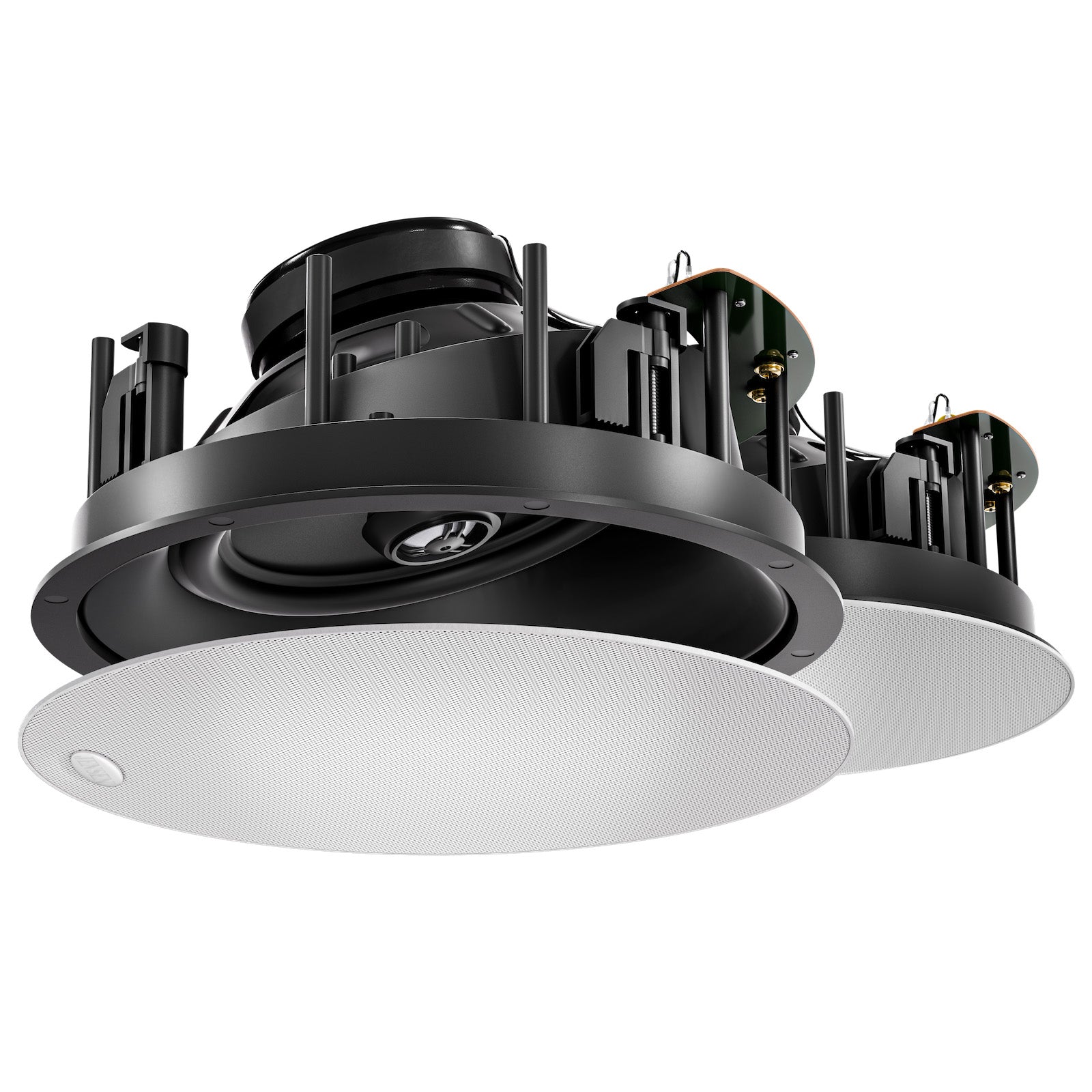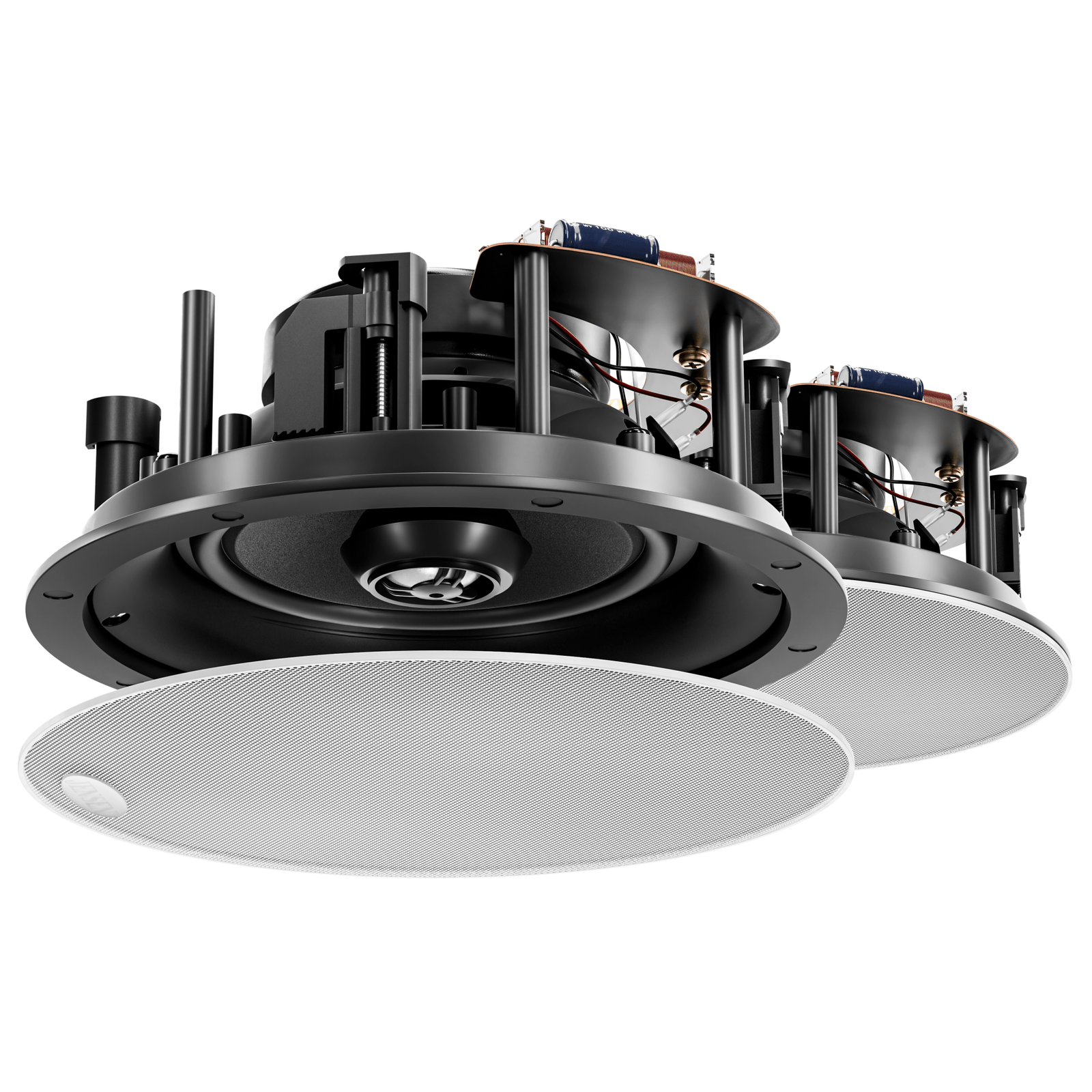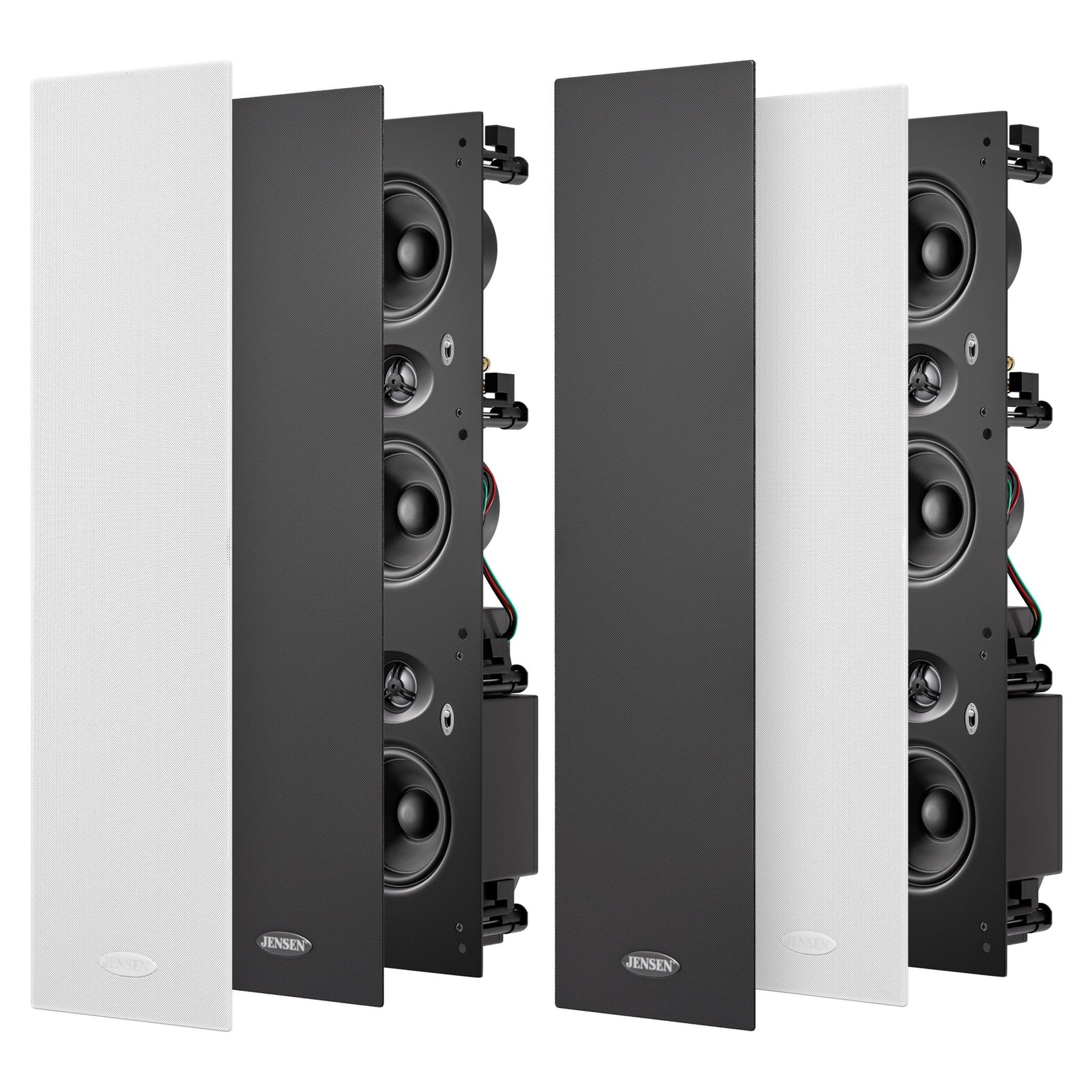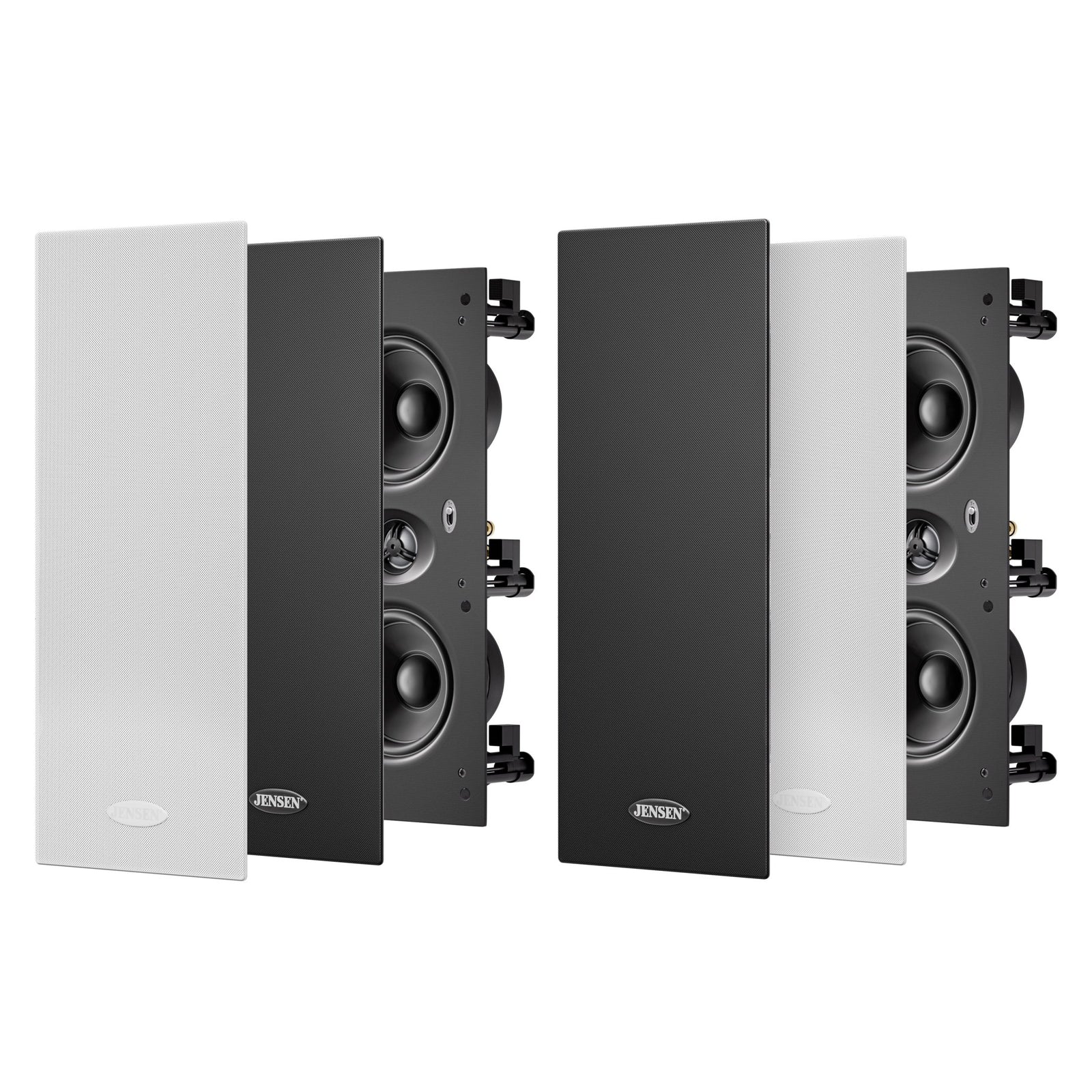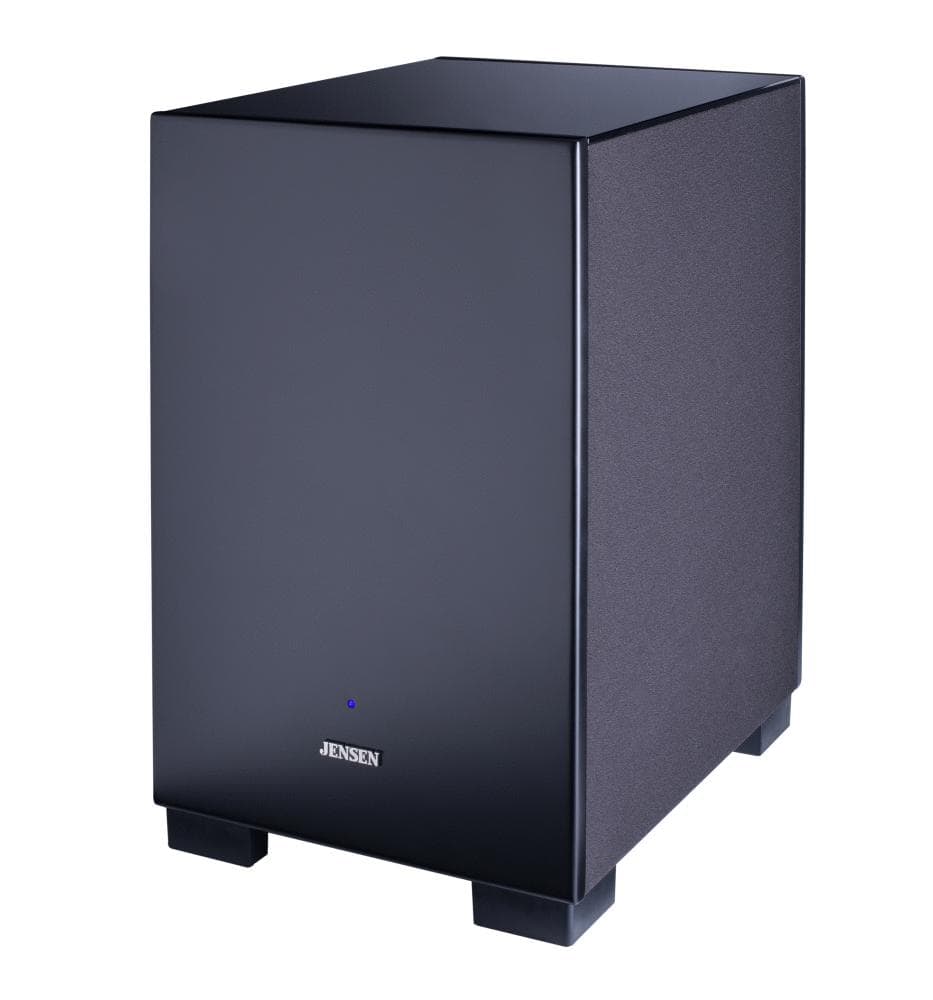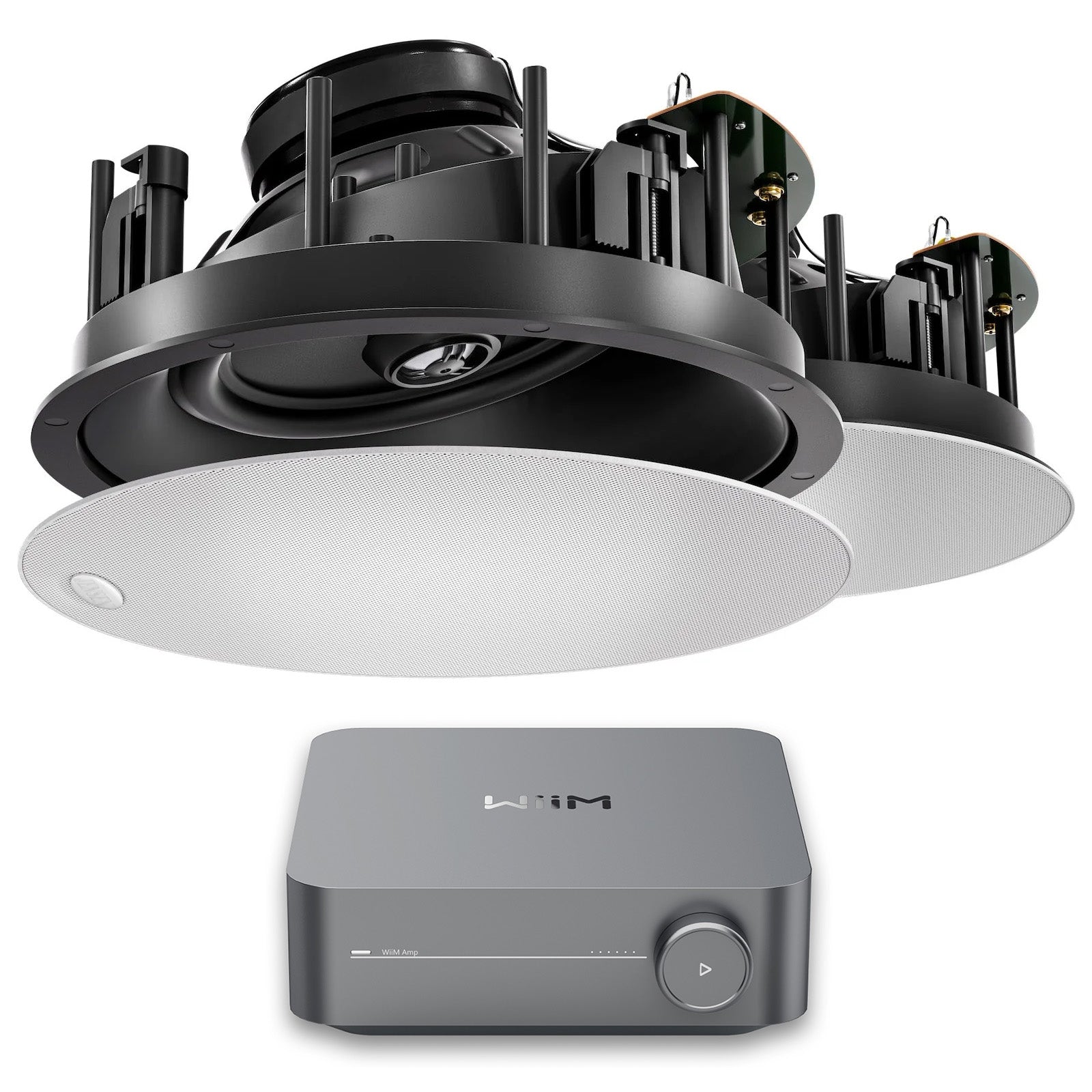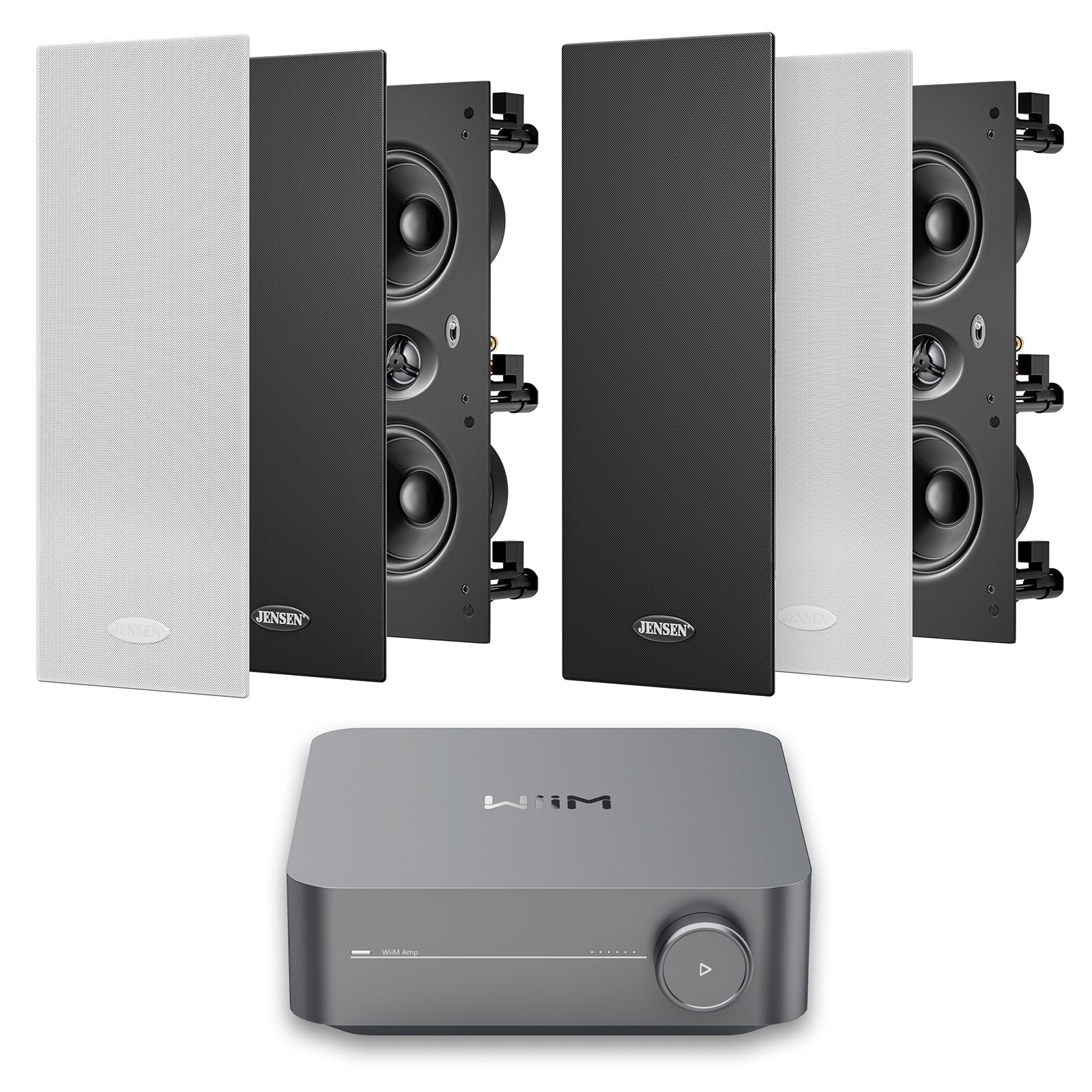HOW MUCH SPEAKER WIRE DO I NEED?

This article will quickly show you how to work out the amount of speaker cabling you need for your home theatre system.
If you want to learn how to cut through the snake oil with cables check out Myths About Speaker Wireon the blog. And for help hooking your speaker cables up, read How To Hook Up Speaker Wire.
Contents
- How to work out speaker cable length to buy
- What gauge speaker wire is best?
- Are special speaker cables worth it?
How to work out speaker cable length to buy
Figuring out how long your speaker cabling should be is straight forward.
You want to measure the distance from a speaker location to wherever your electronics (AV receiver, etc.) will be, then add extra.
The extra cabling accounts for errors, makes hooking things up easier, and prevents the cabling from pulling tight. When cable gets pulled tight, it threatens to damage the connections at the ends.
How to measure the speaker cable you need
If you’re using in-wall speakers or in-ceiling speakers, think about how you’re running the cables.
You may need to measure down the wall, THEN across, then back up to a wall plate. Or you may need to measure across the ceiling and down a wall. Or maybe you need to run a cable neatly within an attic space.
Knowing the run of your cable will help get a more accurate measurement.
Using a tape measure or long string, mock up the run of cable. Figure out how long the distance between each corner or end point. Add them up.
Then I recommend you add 10-20% to this length. You might run into obstacles. And you should keep a bit of slack in all cable runs to prevent tugging at either end.
And if you’re running cables for in-ceiling speakers, make sure you add 500 mm for each speaker run. That makes hookup easier from the ladder.
Note: If you’re running a LOT of cable — long runs to the back of a big room, or runs to extra zones — then you might want to grab a full reel of cable. Then sell the leftovers on a free marketplace website like Gumtree or Stereonet.
Read on to learn WHAT cable to buy.
What gauge speaker wire is best?

The most important factor when choosing between speaker cables is wire gauge.
What does speaker wire gauge mean?
The common standard for this is American Wire Gauge (AWG) and the lower the number, the thicker the wire. In general, thicker wire is better because it has lower resistance to electric current. If resistance get high enough, you start getting audible losses to your signal.
For home speaker systems you should never go higher than 16 AWG and you never need lower than 12 AWG.
The following infographic offers some simple advice:

For a scientific explanation (including measurements) on WHY we recommend these thicknesses… check out this article from Audioholics.
Are special speaker cables worth it?
There’s a ton of tech out there trying to improve speaker cabling performance. Twisted, oval-shaped, suction-cupped, and all the rest of it.
All of those tricks end up having a negligible effect on audio performance.
I suggest you focus on getting (1) pure copper cabling and (2) a thick enough gauge using the above recommendations.
Other considerations with speaker cabling
Here are a few more quick things to know when choosing speaker cables:
(1) Make sure you’re using strand wire and NOT solid copper wire.
Speaker cabling should all strands. That means it’s a bunch of thin copper wires inside the sheathing together. If you try to use solid copper wiring, you’ll end up with breaks wherever you bend or attach it.
(2) Use CL2 rated wire for in-ceilings and in-walls.
People sometimes ask, “what is CL2 speaker wire?”
CL2 (class 2) is a rating that describes wire as being “low voltage.” It’s meant for up to 150 V. It’s also a “fire resistant” wire sheath, which makes it different from other low voltage speaker cabling.
The whole reason for this is to distinguish it from high voltage AC mains electricity. So CL2 is not a hazard like AC mains.
CL3 is similar, but it’s rated for up to 300 V. It’s not needed… your audio signal is low voltage. CL2 is plenty.
(3) Don’t use “CCA” speaker cable
CCA is copper coated aluminium cable and it’s not as good of a conductor of electricity.
Don’t accidentally buy this cable for a home audio setup!
